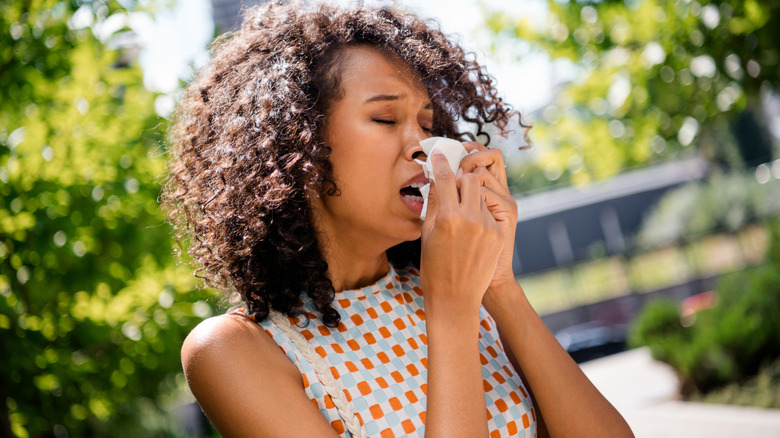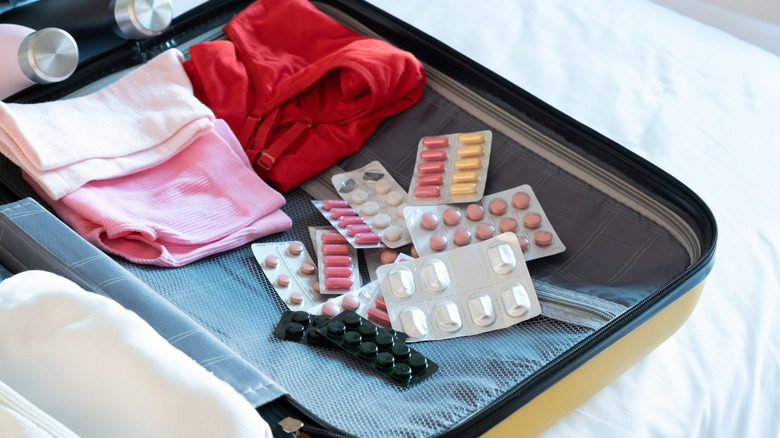Whether you come down with a nasty stomach bug or are struggling with more fatigue than usual, getting sick while traveling can quickly turn any carefully-planned vacation into a never-ending battle of trying to relieve symptoms and looking for ways to salvage your trip before it’s too late. After all, being far away from home is already hard enough on your body and mood. Throw in challenges like finding the right treatment or trying to successfully communicate your symptoms to a local pharmacist in a different language, and it’s enough to complicate an already uncomfortable and frustrating situation.
That said, out of all the potential health concerns out there, there’s one common dilemma that travelers often face — especially when they travel somewhere new around springtime, when seasonal changes can trigger different reactions: is what you’re feeling just allergies from the new environment, or have you caught a cold? Although both conditions typically share similar symptoms, they ultimately require different treatments. Which means it’s likely that any attempt at a self-diagnosis will only lead to wasted time, money, and ineffective care.
Luckily, there are ways to tell the difference. To help travelers gain a better understanding of what happens to their bodies while on vacation, Explore spoke with Dr. Jason Singh, Chief Medical Officer of One Oak Medical Group — or @drjaysonisfresh to his more than 68,000 followers on Instagram. With over a decade of experience, Dr. Singh emphasizes that distinguishing between allergies and colds when you’re away from home ultimately boils down to recognizing specific symptom patterns — something that many travelers often overlook when they’re caught in unfamiliar environments.
How to tell the difference between allergies and colds
Trying to figure out whether you’re dealing with a nasty cold or an annoying seasonal allergy isn’t always as straightforward. However, learning to recognize the symptoms is what’ll ultimately determine if you’re looking for antihistamines or cold medicine. That said, according to Dr. Jason Singh, generic cold symptoms typically include things like “fever, thick yellow-green mucus, sore throat, body aches, and symptoms that develop gradually and resolve within seven to 10 days.” On the other hand, allergies show up a little differently with “clear watery discharge, no fever, itchy eyes/nose/throat, sneezing fits, and symptoms that appear suddenly upon allergen exposure and persist as long as exposure continues.”
Along with the subtle differences in symptoms, the timing and progression of said symptoms also provide important clues as to what you’re dealing with. So, while colds tend to build gradually (sometimes between seven and 10 days), allergy symptoms usually strike suddenly when your body’s exposed to specific triggers like pollen, dust, and even pet dander.
Lastly, what a lot of travelers also don’t realize is that allergies can actually get a lot worse when they’re traveling or visiting new destinations. Per Dr. Singh, this happens due to “new allergen exposure, different pollution levels, stress-induced immune dysregulation, circadian rhythm disruption, and changes in humidity.” In other words, even if you rarely experience allergies at home, you might still develop them while traveling to places with different environmental factors.




